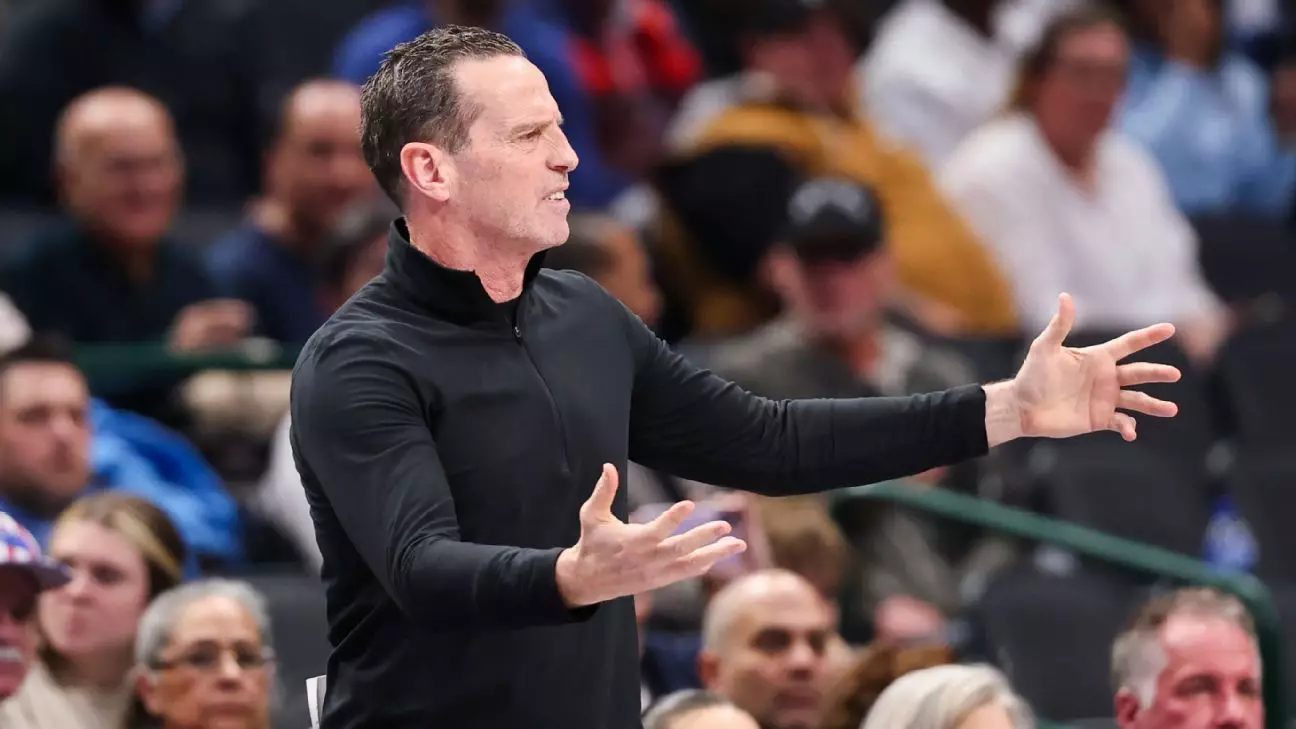In a breathtaking showdown during Game 2 of the Eastern Conference semifinals, the Cleveland Cavaliers and the Indiana Pacers delivered a thrilling spectacle that demonstrated the intense stakes of playoff basketball. The match culminated in a heart-stopping finish, with the Pacers snatching a 120-119 victory against the Cavs, largely fueled by Tyrese Haliburton’s dramatic last-second three-pointer. Pivotal moments like these not only shape the series but also ignite debates about the role of officiating in high-stakes encounters.
The National Basketball Association (NBA) meticulously analyzes the closing moments of games, revealing several missed calls that left both coaches scrambling for answers. According to the NBA’s Last Two Minute Report, multiple lane violations went unpunished, adding layers of controversy and discussion to an already charged atmosphere. Despite the temptation to point fingers at referees, Cavs’ head coach Kenny Atkinson focused on the broader implications of strategy and execution.
Coaching Decisions Under Fire
Atkinson’s reluctance to solely blame officiating reflects a deeper understanding of the game’s nuances. As the NBA Coach of the Year, his insights extend beyond the court to include an examination of how his team lost a commanding 20-point lead. His statement about “recency bias” suggests that fans and analysts often fixate on the last moments of a game while glossing over critical mistakes that transpired earlier. “It’s not just the referees,” Atkinson remarked pointedly, highlighting that every missed opportunity—from player decisions to coaching strategies—contributes to the outcome.
In basketball, the final minutes often magnify the match’s earlier complexities. Atkinson’s assertion that the Cavs had numerous chances to secure their lead speaks volumes about the volatility inherent in playoff competition. Games can turn on a dime, for it isn’t just the points scored late that determine a winner, but the accumulation of both minor successes and failures throughout the game. The Cavs must reflect on both their strategy and mentality during those turbulent moments.
Players in the Spotlight
Haliburton’s performance is commendable, yet it wasn’t without its controversies. His game-winning shot was set against the backdrop of a potential lane violation during a missed foul shot, raising questions about adherence to the rules. The NBA’s admission that multiple players encroached on the lane presents a topic many would prefer to disregard. It emphasizes that the physicality of the playoffs often leads to gray areas, where the line between winning and losing can blur.
At the crux of this drama lies not only Haliburton’s heroics but also Cleveland’s Donovan Mitchell, who faced an alleged 3-second violation call that could have tilted the scales in his team’s favor. This situation sharply contrasts with Pacers’ coach Rick Carlisle’s assertion that his team was on the wrong side of foul calls throughout the series, underscoring the inherent biases present in any competitive sports setting.
It’s important to shine a light on the players’ accountability as well. Despite moments of brilliance, both teams made decisions that were less than ideal. Whether it be a lapse in defensive focus or a hurried shot selection, these elements coalesce to create the thrilling tapestry that is playoff basketball.
The Broader Implications for Playoff Culture
As these two teams prepare for their next encounter, the lessons from Game 2 linger like an aftertaste: the need for consistent focus, the profitability of strategic discipline, and the relentless scrutiny of officiating that permeates the league. The playoffs are notorious for intensifying skills both on the court and in the mind. Coaches and players alike must navigate the landscape of pressure, where every decision feels magnified, and the cost of a single misstep can be steep.
As Game 3 approaches in Indianapolis, there’s an electrifying anticipation in the air. Will the Cavs learn from their past mistakes and regain composure? Or will the Pacers capitalize on their momentum, displaying a confidence that comes only from a hard-fought victory? These questions linger, promising another rollercoaster installment in what has already been a captivating playoff series. In the unpredictable world of sports, the intertwining of officiating, execution, and psychological resilience creates a narrative that fans can only hope to unravel as they witness the unfolding drama on the court.

